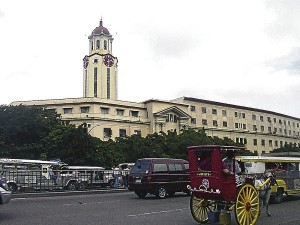Bright sides to Manila being ‘abysmal’

DESPITE the ‘below fair’ to ‘abysmal’ rank it received, there are still positive points to Manila as a property investment option.
It can’t be all that bad, can it?
Manila, the capital of the Philippines, just recently received some sobering news. The historic city has just been ranked “below fair” to “abysmal” by foreign property investors, according to the Emerging Trends in Real Estate Asia Pacific 2011 survey conducted by the Urban Land Institute (ULI).
The survey indicates that global real estate investors gave Manila a score of 4.56 points out of a possible 9. Topping the survey in the Asia-Pacific region was Singapore with a score of 5.96 points, followed by Shanghai with 5.87, Mumbai with 5.79 and Hong Kong with 5.70.
In general, the Philippines, says a source, has been suffering from a series of unfortunate events leading to a negative image abroad, prompting investors in publicly listed real estate firms to bypass the country when it comes to deciding where to allocate their funds.
Stringent policy
Paul Vincent Chua, associate director for valuation and advisory services and head of consultancy and research of Colliers International, a leading global real estate services company, explained the country’s stringent policy on foreign ownership of land as one possible deterrent for investors.
“The Philippines is one of the few countries in Asia where foreign land ownership is limited to 40 percent.”
Still, Chua said there were positive points to Manila as a property investment option. He urged the sector to look at the brighter side, particularly the lower rental rates compared to other Asia-Pacific countries.
“For the office sector alone, with 25 Asia-Pacific cities covered by Colliers International, Makati City has the third lowest rent, ranking No. 22 on the list with an average net rent of $21.48/square feet. The city that commands the highest rent, Hong Kong, has an average net rent of $185.91/square feet. Then we looked at the capitalization rate or prime yield of these cities. Makati ranked No. 2 with 9.77 percent, following No. 1 Mumbai with 10.6 percent.”
Sufficient fund
Real estate educator, engineer and veteran broker Enrico Cruz said that at present, the country’s real estate industry does not need foreign investment to finance its real estate development.
He said the country’s local investors and developers “have sufficient fund to finance the ongoing development and cope with the current demand.”
“I do not see a scenario where development is lagging behind demand because of lack of development funds and as such will warrant need for foreign investments,” Cruz said.
He added: “Maybe what we need are more foreign investors who will invest on a long-term basis in our real estate industry, as owners and lessors. But even in this aspect, the volume of our local investors and end buyers are enough to sustain growth in our real estate industry.”
Big factor
Cruz said “overseas Filipino workers’ remittances, and its channeling to our real estate development projects as buyers’ funding, is a big factor that has made our economy perform better than other countries.”
National Real Estate Association chair Alejandro S. Mañalac quipped: “They must be referring to Institutional Investments. Well, that is something we have actually never been very strong yet. Our promotions and campaigns for that were not as aggressive as our neighbors. In fact, exactly on the same date, Dec. 6, Hong Kong will be hosting the forum on Emerging Trends in Real Estate in Asia and the Pacific while Kuala Lumpur will have the third annual Southeast Asia Institutional Investments Forum.”
Wake-up call
Enrique Soriano, professor at the Ateneo Graduate School of Business and senior adviser at Wong+Bernstein Business Advisory, quipped, “(The survey) is unfortunate, but a wake-up call for the stakeholders, including the present administration, that a collective and decisive game plan be implemented.”
He added: “For starters, the REIT (Real Estate Investment Trust) law must now be implemented. Hong Kong, Thailand, Singapore, Malaysia and our neighbors have significantly benefited from REIT. Implementing it will open more opportunities for investment,” Soriano said.
He explained “we will see financial discipline, liquidity, and access to capital in the sector. The added bonus will be best practices on transparency and professionalism for REIT-managed assets. All these will contribute to the Philippine economy in 2012.”














